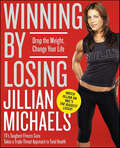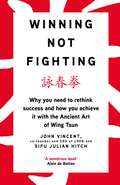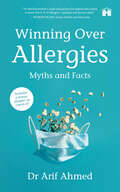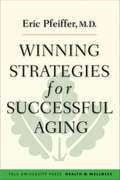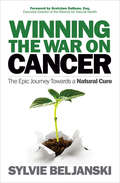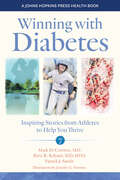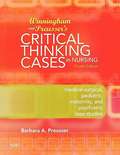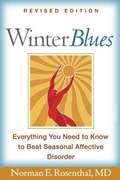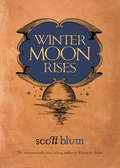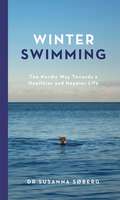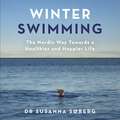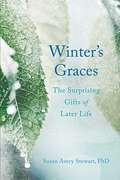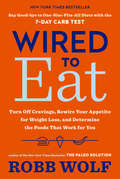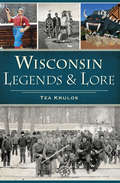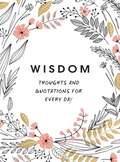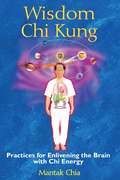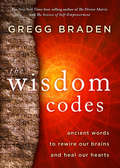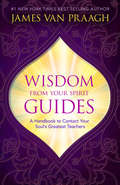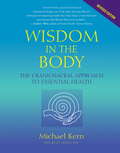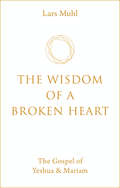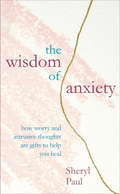- Table View
- List View
Winning by Losing: Drop the Weight, Change Your Life
by Jillian MichaelsDrop the weight and change your life with Jillian Michaels’ Winning by Losing. The fitness expert on the smash hit NBC TV show “The Biggest Loser” and “Losing It,” Jillian offers her unique, comprehensive, no-nonsense health and fitness program that can help anyone lose unwanted pounds and keep them off. Losing never felt so good!
Winning Not Fighting: Why you need to rethink success and how you achieve it with the Ancient Art of Wing Tsun
by John Vincent Sifu Julian HitchWinning Not Fighting draws on the philosophy of Wing Tsun, an ancient Chinese martial art, to offer a profound and practical guide to achieving success at work, life and business. By explaining what these teachings reveal about decision-making, professional relationships, personal targets and positivity, it challenges some of our deepest-held assumptions and forces us to unlearn many ideas that inform our current ideas on professional success.Why, for example, do we refer to business through a lens of conflict? Why does winning always require confrontation, competition and a loser? John Vincent and Julian Hitch challenge our ingrained assumptions about success and achievement to to guide us through a path of self-cultivation using the eight wisdoms of Wing Tsun.John Vincent, the co-founder of LEON, has applied these mantras to his healthy fast- food empire with enormous success. In Winning Not Fighting, he collaborates with Wing Tsun master, Sifu Julian Hitch to sculpt this timeless wisdom into a practical and accessible guide to achieving success for your business.
Winning Over Allergies: Myths and Facts
by Dr. Arif AhmedAllergy is considered to be the epidemic of the 21st century and it is estimated that about 30 per cent of the total Indian population suffers from some kind of allergic symptom. Factors like air pollution, globalisation, and change in lifestyle and habits are just a few causes that have expedited allergies such as asthma, rhinoconjunctivitis, sinusitis, food allergies, hives, and eczema. And these numbers are only on the rise.Winning Over Allergies: Myths and Facts has been specifically written with an aim to turn the tide of this modern epidemic. The book tackles head-on the many misconceptions surrounding prevalent allergies and presents action-oriented, step-by-step instructions for uncovering the root cause of allergies and implementing specific changes to stop them from recurring. Dr Arif Ahmed, a noted allergist and paediatrician, reveals the basic core concepts of allergy management and confronts all the common concerns in a clear and concise manner along with additional information through FAQ sections. He presents comprehensive and practical knowledge with the latest in medical approaches and complementary medicine in an easy-to-follow, jargon-free language.All in all, this book is an unbiased compendium of valuable information against one of the most common chronic conditions in the world—allergies.
Winning Strategies for Successful Aging (Yale University Press Health & Wellness)
by Eric Pfeiffer&“A work of inspiration and pragmatism&” offering heartening advice on navigating the later years of life for aging individuals and their families (Gary J. Kennedy, M.D., Professor and Director of Geriatric Psychiatry, Montefiore Medical Center, Albert Einstein College of Medicine). For anyone who is approaching a 65th birthday with trepidation, Dr. Eric Pfeiffer, who for thirty years has cared for—and learned from—elderly people, addresses with compassion and deep understanding the multitude of issues that arise. He writes authoritatively but in a conversational tone. His advice is easy to read, easy to follow, and full of wisdom. In short, practical chapters, Dr. Pfeiffer advises on choosing an ideal place to live, finding a range of satisfying activities, and maintaining an active social life. He also explains how best to maintain one&’s health, mental health, wealth, and independence. Other chapters explore the importance of a spiritual life and the value of maintaining an active sexual life. In addition, the author speaks to the value of charitable giving and describes how it is possible to prepare for a good good-bye to life. Filled with illustrative anecdotes and enhanced with a lovely selection of poems, this reassuring book demonstrates how it is possible to direct and control the aging experience. For every person approaching retirement years, and for their friends and families, the book is an excellent resource and a practical guide. &“A highly readable, thoughtful book that contains many important facts and much wisdom.&”—Myron Weiner, M.D., University of Texas Southwestern Medical School &“A valuable addition to the existing literature, and I would recommend it to friends, patients, and their families.&”—Richard Marottoli, M.D., Dorothy Adler Geriatric Assessment Center at Yale-New Haven Hospital
Winning the War Against Asthma & Allergies: A Drug-Free Cure for Asthma and Allergy Sufferers
by Ellen W. CutlerAllergy types, causes, symptoms, testing and treatment. Asthma warning signs, symptoms, causes, respiratory diseases and preventative measures. Nambudripad allergy elimination technique.
Winning the War on Cancer: The Epic Journey Towards a Natural Cure
by Sylvie Beljanski&“A fascinating combination of personal story and details on the suppression of holistic cancer(and other disease) therapies&” (Ann E. Fonfa, president, The Annie Appleseed Project). President Nixon signed the National Cancer Act in 1971, declaring a war on the disease. Nearly fifty years and several billion dollars later, it looks like we have lost the battle. Or have we? What if a natural solution had been there all along, just overlooked by the pharmaceutical industry? When a new, natural, and non-toxic way to address cancer is being discovered, it is a game changer that does not go unnoticed in the scientific community. But instead of being hailed and embraced, it is fiercely opposed by prominent scientists with strong ties to the pharmaceutical industry, and the might of the government is called to the rescue. As a result, we are losing the war on cancer. Mirko Beljanski, PhD, one of the first green molecular biologists, was called upon by former French president François Mitterrand to treat his prostate cancer, allowing him to reach his second term in office, but upon his death, Beljanski became the subject of relentless persecution aimed at wiping out this information. In Winning the War on Cancer, his daughter Sylvie Beljanski outlines her journey of learning about her father&’s discoveries, and ensuring his legacy is available to all those struggling with the disease today. &“Whether a current patient or caregiver, a survivor, a researcher, an author/speaker, or a physician, the information in this book is groundbreaking, exciting, and essential to know . . . Sincere, captivating, poignant, and educational.&” —Annie Brandt, founder and president of Emerita, Best Answer for Cancer Foundation
Winning with Diabetes: Inspiring Stories from Athletes to Help You Thrive (A Johns Hopkins Press Health Book)
by Mark D. Corriere Rita R. Kalyani Patrick J. SmithDon't let diabetes send you to the bench. These motivational stories of top athletes with diabetes will inspire you to live your best life.An ultra-marathoner, a three-time Olympic gold medalist, a major league pitcher, and an NFL star. What do these elite athletes have in common? They reached the top of their field—all while living with diabetes. Essential reading for people who have diabetes and their families, Winning with Diabetes highlights the challenges, perseverance, and successes of sixteen elite athletes living with the disease. From mountain climber Will Cross, to college softball champion Kylee Perez, to NBA legend Dominique Wilkins, and many more, these are the real-life stories of diagnosis, adapting new day-to-day routines, finding support, training, competing, and connecting with communities of other people living with diabetes. The book features advice for facing common fears and challenges, both on and off the playing field. Each chapter includes interviews with athletes about their experiences, paired with expert commentary from the authors. Chapters also include summaries of key concepts, along with illustrations and other graphics.Winning with Diabetes will inspire readers of all ages—those newly diagnosed as well as those who have lived with diabetes for years. Written by physicians who have set the standards for management of the disease, this book brings you expert insight into finding ways to live your best life. Let the experts, the athletes, and the inspiration in Winning with Diabetes give you what you need to you stay in the game.
Winningham and Preusser's Critical Thinking Cases in Nursing: Medical-surgical, Pediatric, Maternity, and Psychiatric Case Studies (4th edition)
by Barbara A. PreusserThe fourth edition of this collection of case studies for nursing students and practitioners offers 148 examples that foster creative thinking skills in medical-surgical, pediatric, maternity and psychiatric situations. Preusser (family nurse practitioner, Veterans Administration Medical Center, Utah) groups these case studies according to body systems for a quicker access to vital information, and she illustrates the changes, complications and therapeutic interventions that may occur for each example. This latest edition also provides a new approach to prioritization tasks in clinical environments.
Winter Blues, Revised Edition
by Norman E. RosenthalWinter isn't a "wonderland" for everyone. Every year, millions of us feel our energy levels ebb and spirits fall as the days grow shorter. The condition is called seasonal affective disorder (SAD), and it can cause depression, reduce your productivity, and make it harder to control your appetite. In this no-nonsense, up-to-date survival kit for weathering the winter blues, Dr. Norman Rosenthal explains what causes seasonal mood swings and what you can do about them. A self-test allows you to evaluate your own level of SAD and helps you determine an appropriate plan of action. The book covers an expanded variety of methods proven to help you feel better--including new developments in light therapy, antidepressant medications, and breakthrough self-help strategies. Convenient menus and easy recipes make sticking to a healthy winter diet more enjoyable, and a new section on the benefits of exercise motivates you to stay active even when it's gloomy outside. A step-by-step guide helps you organize your yearly schedule to anticipate seasonal changes, and a special chapter for family and friends teaches loved ones effective ways to show support. Like a ray of light on an otherwise cloudy day. Dr. Rosenthal's expertise, warmth, and enthusiasm will inspire you to reclaim the winter months and find ways to celebrate even the darkest days of the year.
Winter Moon Rises
by Scott BlumThe third installment in Scott Blum's best-selling series of enchanting novels, Winter Moon Rises continues where the semiautobiographical Waiting for Autumn left off. This book follows Scott and his soul mate, Madisyn, as they prepare for their most profound adventure together: the journey of bringing their first child into this world. Discovering that the miracle of birth is not limited by the physical world, Scott and Madisyn embark on an insight-filled spiritual awakening, where they discover how their entire history has ultimately laid the foundation for their expected child's future. Exploring ancient rituals, unseen worlds, and ancestral healing, the couple soon discovers how we all remain connected to the magical world of unborn children long after we become adults. Much more than a traditional story about expecting parents, this metaphysical page-turner plunges to the deepest emotional and spiritual depths that contain the hidden secrets of how our souls work with one another. This heartwarming adventure captures the imagination and reveals what it truly means to be a spiritual being having the ultimate human experience.
Winter Swimming: The Nordic Way Towards a Healthier and Happier Life
by Susanna SøbergA beautifully illustrated exploration of cold-water traditions in Scandinavia and around the world, and a thorough account of why winter swimming gives such a boost to body and soul.Whether in lake, lido, river or sea, we know the benefits of swimming outdoors and in nature - environmentally friendly and accessible, it can influence our happiness, our energy and our inner tranquility, and give us that winter glow.Danish scientist Dr Susanna Søberg leads us step by step into the icy water and explains the "cold-shock response", the massive endorphin rush as our body reacts and adapts to very cold temperatures through the winter season. Not only do our circulation, heart, lungs and skin respond positively, but our immune system, metabolism and mental health too. In particular she explains how our "brown fat" is activated to benefit multiple health conditions.Winter swimming is fast becoming one of our most popular pastimes. This beautifully illustrated exploration of cold-water traditions in Scandinavia and around the world shows how it can have a significant positive impact on our physical and mental health, confidence and well-being, providing such a boost to body and soul. Translated from the Danish by Elizabeth DeNoma
Winter Swimming: The Nordic Way Towards a Healthier and Happier Life
by Susanna SøbergA beautiful exploration of cold-water traditions in Scandinavia and around the world, and a thorough account of why it provides such a boost to body and soul.Whether in lake, lido, river or sea, we know the benefits of swimming outdoors and in nature - environmentally friendly and accessible, it can influence our happiness, our energy and our inner tranquility. WINTER SWIMMING takes this one step further, as contact with cold water all year round can also have a significant positive impact on our physical health, confidence and well-being.Danish scientist Susanna Søberg leads us step by step into the icy water and explains the "cold-shock response", the massive endorphin rush as our body reacts and adapts. Not only do our circulation, heart, lungs and skin respond positively, but our immune system and metabolism too. Most specifically she explains how our "brown fat" is activated to benefit multiple health conditions.WINTER SWIMMING is both a beautiful exploration of cold-water traditions in Scandinavia and around the world, and a thorough account of why it provides such a boost to body and soul. Translated from the Danish by Elizabeth de Noma(P) 2022 Quercus Editions Ltd
Winter Swimming: The Nordic Way Towards a Healthier and Happier Life
by Susanna Søberg***As featured on Dr Rangan Chatterjee's FEEL BETTER, LIVE MORE podcast***"Loads of practical guidance, all the scientific studies . . . beautiful photos and illustrations" Dr Rangan Chatterjee A beautifully illustrated exploration of cold-water traditions in Scandinavia and around the world, and a factual, scientific account of why winter swimming gives such a boost to body and soul.Whether in lake, lido, river or sea, we know the benefits of swimming outdoors and in nature - environmentally friendly and accessible, it can influence our happiness, our energy and our inner tranquility, and give us that winter glow.Danish scientist Dr Susanna Søberg leads us step by step into the icy water and explains the "cold-shock response", the massive endorphin rush as our body reacts and adapts to very cold temperatures through the winter season. Not only do our circulation, heart, lungs and skin respond positively, but our immune system, metabolism and mental health too. In particular she explains how our "brown fat" is activated to benefit multiple health conditions.Winter swimming is fast becoming one of our most popular pastimes. This beautifully illustrated exploration of cold-water traditions in Scandinavia and around the world shows how it can have a significant positive impact on our physical and mental health, confidence and well-being, providing such a boost to body and soul.Praise for Winter Swimming:"Full of brilliant insights . . . an inspiring book" Stylist Christmas Gift Guide 2022"It's all the encouragement you need to dip a toe in icy waters" Woman & Home"Packed with stunning photography" Red Magazine"A perfect gift" My Weekly"A blend of how, and why, and what . . . A beautiful celebration . . . Visual inspiration for anyone hovering on the edge" Sunday Independent"Take an uplifting dip into Winter Swimming" Stylist's "Ultra List"Translated from the Danish by Elizabeth DeNoma
Winter's Graces: The Surprising Gifts of Later Life
by Susan Avery Stewart PhDFilled with unexpected good news about growing older, Winter&’s Graces highlights eleven qualities that ripen with age—including audacious authenticity, creative ingenuity, necessary fierceness, self-transcending generosity, and a growing capacity to savor life and to ride its ups and downs with humor and grace. Decades of research have established that the catastrophic conditions often associated with late life, such as severe dementia and debilitating frailty, are the exception, not the rule. Still, the mistaken idea that aging equals devastating decline persists, causing enormous and unnecessary suffering, especially for women. Drawing on decades of experience as a psychology professor and psychotherapist, Susan Stewart, PhD, weaves together inspiring folk stories that illustrate the graces of winter and recent research that validates them, along with a wealth of user-friendly tools and practices for amplifying these graces and bringing them to life. Written primarily for women over 50 seeking good news about growing older, Winter&’s Graces offers adults of all ages a compelling vision of aging that celebrates its many gifts, acknowledges its challenges, and reveals how the last season of life can be the most fulfilling of all.
Winter's Tail: How One Little Dolphin Learned to Swim Again
by Juliana Hatkoff Isabella Hatkoff Craig HatkoffThe authors chronicle the story of a dolphin named Winter, who had been rescued from a crab trap as a baby, and suffered a seriously damaged tail. Winter later had been fitted with a prosthetic tail. Now, the special technology used for Winter's prosthetic tail is being used to develop prosthetics for Iraq war veterans who have especially sensitive injuries.
Wired to Eat: Turn Off Cravings, Rewire Your Appetite for Weight Loss, and Determine the Foods That Work for You
by Robb WolfFrom New York Times bestselling author of The Paleo Solution... One Month to Reset Your Metabolism for Lasting Fat LossOne Week to Discover the Carbs that are Right for You The surprising truth is that we are genetically wired to eat more and move less, the exact opposite of the advice we are often given. Now there is a more customized weight loss solution that works with your body, a solution based not on arbitrary restriction of foods but on what works for YOU. Developed by former research biochemist, health expert, and bestselling author Robb Wolf, Wired to Eat offers an eating program, based on groundbreaking research, that will rewire your appetite for weight loss and help you finally determine the optimal foods for your diet and metabolism.With his bestselling book, The Paleo Solution, Robb Wolf helped hundreds of thousands of people lose weight by eating a low-carb Paleo diet, but Paleo is only a starting point, not a destination. Now, he'll share a more customized way of eating that may be the key to permanent weight loss and better health. You'll start with Wolf’s 30-Day Reset to help you restore your body's blood sugar levels, repair your appetite, and reverse insulin resistance. There are more than 70 delicious recipes, detailed meal plans, and shopping lists to aid you on your journey. Wolf also includes meal plans for people who suffer with autoimmune diseases, as well as advice on eating a ketogenic diet. Once you've completed this phase of the plan, the unique 7-Day Carb Test will help you determine what amounts and types of carbs you can tolerate. No more guessing. Now you can find out for yourself which foods you can and cannot eat, instead of relying on a one-size-fits all diet. Transform your diet by discovering your peronalized weight loss blueprint with Wired to Eat.
Wisconsin Legends & Lore (American Legends)
by Tea KrulosWisconsin is a land rich with stories. It was the "mother of all circuses," a place of buried treasure and home to eerie ghosts and monsters. Native American legends, tall tales told at lumberjack camps and taverns, ghostlore and modern urban legends all form the wonderful mythology of the Dairy State. Many know of Rhinelander's famous Hodag, the Beast of Bray Road in Elkhorn, Milwaukee's haunted Pfister Hotel and the Ridgeway Ghost. But few have heard obscure tales like the Christmas Tree Ghost Ship of Two Rivers, the Goatman of Richfield's Hogsback Road and the legend of the Witch's Tower of Whitewater. Author Tea Krulos, an expert in all things strange and unusual, digs up Wisconsin favorites and arcane lore.
Wisdom: Thoughts and Quotations for Every Day
by Summersdale PublishersImmerse yourself in the words of the world’s best writers, leaders and thinkers with this beautiful book of motivational words and quotes. Inspire your heart, free your mind, and bask in the glow of positive thinking.
Wisdom: Thoughts and Quotations for Every Day
by Summersdale PublishersImmerse yourself in the words of the world’s best writers, leaders and thinkers with this beautiful book of motivational words and quotes. Inspire your heart, free your mind, and bask in the glow of positive thinking.
Wisdom Chi Kung: Practices for Enlivening the Brain with Chi Energy
by Mantak ChiaTaoist meditation practices for increasing and maintaining mental awareness, memory, and clarity • Details techniques to increase the level of chi energy in the brain • Explains how to synchronize the left and right brain by activating the body’s energetic potentials • Shows that by emptying the mind there is more energy to heal the body Wisdom Chi Kung teaches practitioners how to revitalize the brain: to repair function, increase memory, and expand capacity. Every day we use up so much of our brain’s capacity to function that we have very little left at the end of the day. By thinking or worrying too much, the brain can use up to 80 percent of the body’s entire energy reserve. Learning to stop the brain, to empty the mind from the ceaseless chatter of the “monkey mind,” and then recharge it with chi energy can increase our mental capacity, focus, and clarity. Using the Inner Smile meditation technique, practitioners learn how to recharge chi energy for the brain in a form that is most useful. Practitioners smile and empty the mind into the lower tan tien and the organs. The organs then transform this chi energy. When the mind is empty, the energy transformed by the organs is sent back to the brain to revitalize it. This process synchronizes the left and right brain by activating and tapping in to the body’s energetic potentials. As the mind continues to empty, receive, and also enhance the transformed chi energy, it is able to open itself to connect with universal chi energies and fill the body with enhanced life force.
The Wisdom Codes: Ancient Words to Rewire Our Brains and Heal Our Hearts
by Gregg BradenThe cutting edge of neurolinguistics meets the spiritual wisdom of the ages in a handbook of key words that literally rewire our brains.New discoveries in biology and the neurosciences are revealing how the structure of language-the words we think and speak-can actually change the way the neurons in our brains and hearts connect. But our ancestors understood this connection intuitively, thousands of years ago. They created specific word-patterns to provide comfort, healing, strength, and inner power in difficult times, and they encoded these powerful words in prayers, chants, mantras, hymns, and sacred writings to preserve them for future generations. Now beloved teacher and thought leader Gregg Braden cracks the code and puts these powerful words in your hands.Perfect as a pocket guide, a reference for spiritual study, or a gift to someone you love, this elegant, compact book contains Wisdom Codes that cut to the core of life's greatest tests, most challenging demands, and hardest lessons. You'll find chapters devoted to healing from loss and grief, facing your unspoken fears, finding certainty in the face of uncertain choices, and finding forgiveness, as well as ancient parables that offer a "fast track" to unraveling life's deepest mysteries. Each Wisdom Code-distilled from a quote, a scripture passage, or a parable-is accompanied by a brief discussion of what the code means, why it's important, and how to apply it in your life.
Wisdom from Your Spirit Guides: A Handbook to Contact Your Soul's Greatest Teachers
by James Van PraaghYour Spirit Guides Are Waiting to Talk to You!Whether you realize it or not, you&’re in constant contact with your spirit guides. Your spirit guides, a team of energetic beings, are ever-present spiritual teachers offering guidance, support, wisdom, and love.In this book, world-renowned spiritual medium James Van Praagh shares the benefits and rewards of having a conscious relationship with your guides. You&’ll explore the many different guides you can encounter over the course of your life and lifetimes, including earth guides who have physical bodies and those who reside in the Spirit realm. Since our soul&’s energy is constantly changing, our guides, too, are changing, making for a rich and infinite array of possibilities.You will also discover where the guides come from and what they are here to do. James offers insights from the guides that deal with common situations, and shows you how to make contact with your own inner guides and protect yourself from unwanted energies. The book features a series of powerful energy-raising exercises and meditations to enrich your journey to understanding your guides and the assistance they can impart on your life. In doing so, you&’ll learn how to work with your chakra points, increase your heart space, and ground yourself to receive messages from your guides.&“From the moment we take our first breath, our unseen support team is always nearby to assist and take care of us. Even in the most desperate of moments, we are never alone. There are many beings encouraging you to rise up and believe in yourself, or to find an aspect of yourself that you have forgotten which can strengthen your resolve.&”
Wisdom in the Body
by Franklyn Sills Michael KernAccumulations of life stresses--physical injuries, emotional and psychological stresses, birth traumas, and toxicity--can become imprinted in the tissues, acting like a videotape that is replayed whenever stimulated. Biodynamic craniosacral therapy aims to resolve the trapped forces that underlie and drive these trauma-based patterns of disease and suffering in body and mind. Wisdom in the Body teaches practitioners to develop the finely tuned skills of hands-on palpation and perception to sense the body's subtle rhythms and patterns of inertia or congestion, with the goal of ending trauma and facilitating the expression of the breath of life. A comprehensive introduction to this practice, the book draws on the insights of pioneers like Drs. W. G. Sutherland and Franklyn Sills to explain the key principles about the body's natural intention to heal and how this capability can be encouraged. A valuable resource for students, practitioners, and the lay reader, the book also includes a foreword by Dr. Franklyn Sills.From the Trade Paperback edition.
The Wisdom of a Broken Heart
by Lars MuhlIn this gift book from renowned spiritual teacher Lars Muhl we learn that the vast majority of us will experience emotional pain in our lives but that it's possible to use that pain as a unique opportunity for spiritual growth. The perfect book for improving your self-care or as a gift for someone you love.The Wisdom of a Broken Heart is a beautifully designed hardback gift book with profound content that draws on Lars Muhl's many years of spiritual studies and experiences. In a time when we as humans are being challenged in many ways, Lars stresses that it is through the pain suffered by so many of us, and by understanding the deeper meaning of that pain, that we are given a unique opportunity for a breakthrough at the spiritual plane. Arranged in verse form, the book contains the essence of the secret teachings taught by Yeshua (Jesus) the Nazarene and Mariam (Mary) Magdalene 2,000 years ago. Over the years, the teachings have been revealed in fragments and scattered glimpses; this book now creates a synthesis of the beautiful wisdom of the complete human being. Topics range from the profound energetic exchange that occurs between two lovers (with visualizations to meet Yeshua if you identify as a woman or Mariam if you identify as a man), to using mantras, song and dance in order to reach divine awareness, to numerology and other symbolism. Ultimately, this is a complete guide to living the Law of Light for the benefit of yourself and the wider world. As Lars says: "We are all potential healers, and if there is anything the world needs right now, it is exactly healers."
The Wisdom of Anxiety: How worry and intrusive thoughts are gifts to help you heal
by Sheryl Paul'We have to shift from a mindset of shame, which sees anxiety as evidence of brokenness, to a mindset of curiosity, which recognizes that anxiety is evidence of our sensitive heart, our imaginative mind and our soul's desire to grow towards wholeness.' Three million people are thought to suffer from anxiety in the UK, and it is an issue that affects a growing number of people across all ages. For anyone troubled by obsessive thoughts, insomnia and other manifestations of anxiety, counsellor Sheryl Paul offers shelter in the storm. In The Wisdom of Anxiety, Paul reveals that anxiety, like any emotion, is a signal - a clear bodily invitation to heal and renew your trust in your choices, self-image and core values. Weaving together practical exercises with personal stories, Paul offers medication-free approaches for accessing the gifts in different kinds of anxiety, and especially the anxiety summoned by life's transitions, for example a career change, becoming parents or becoming carers for loved ones. Chapters include recognising the symptoms of anxiety, its origins, the myth of 'normal', the expectation of happiness and a timeline of healing that includes exercises for the body and mind. There are also chapters on parenting in an age of anxiety and the vulnerability of connection and relationships.
